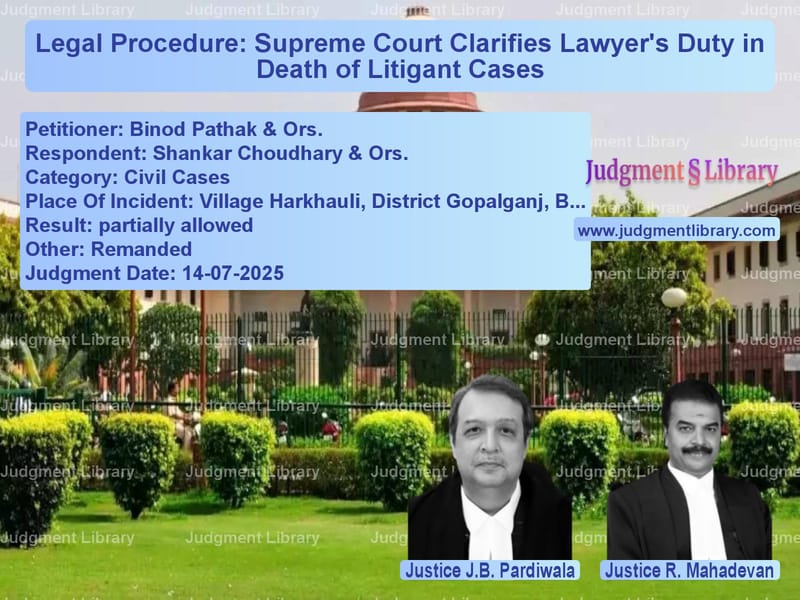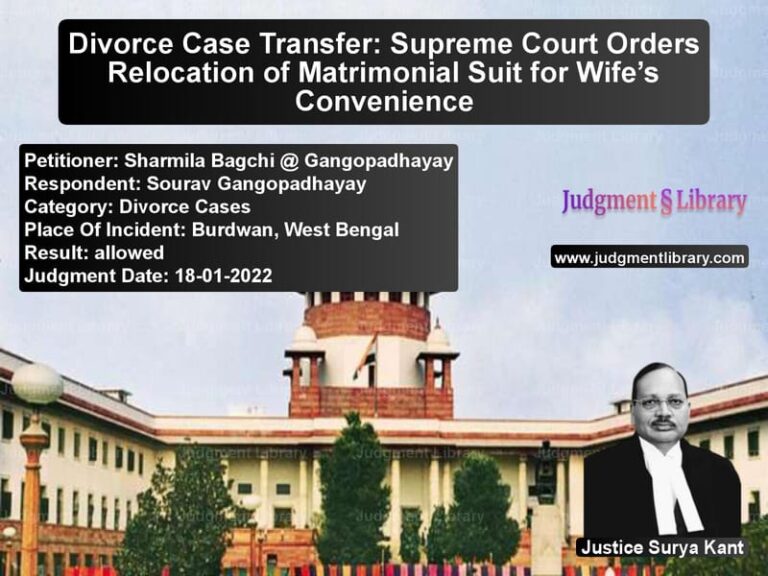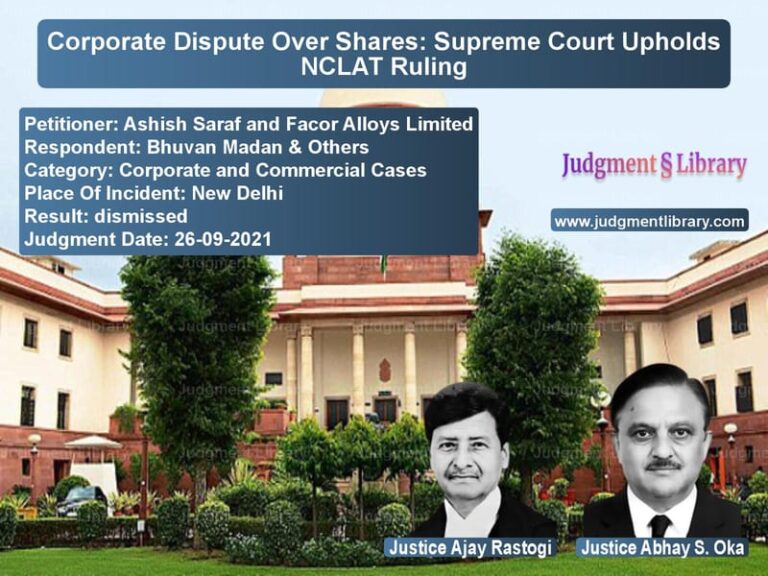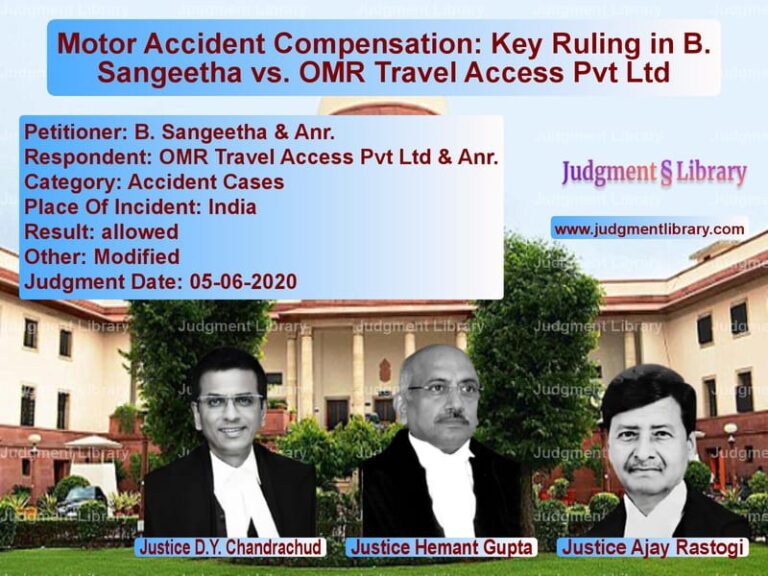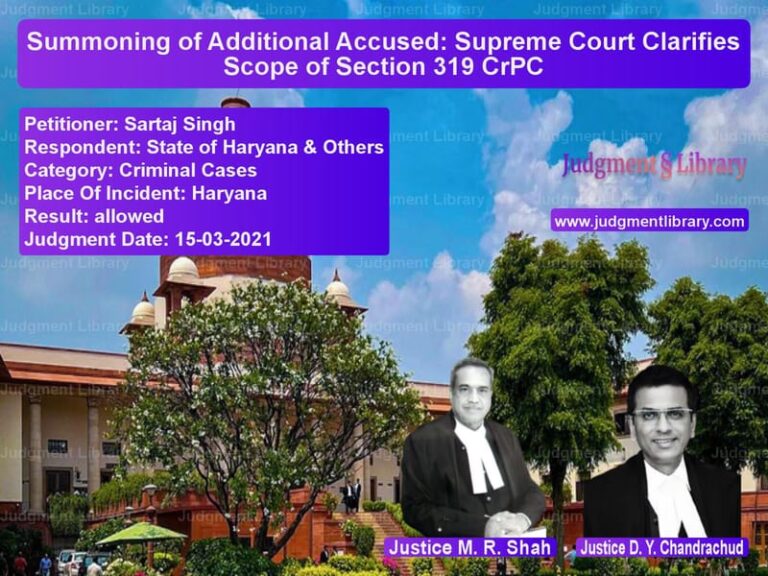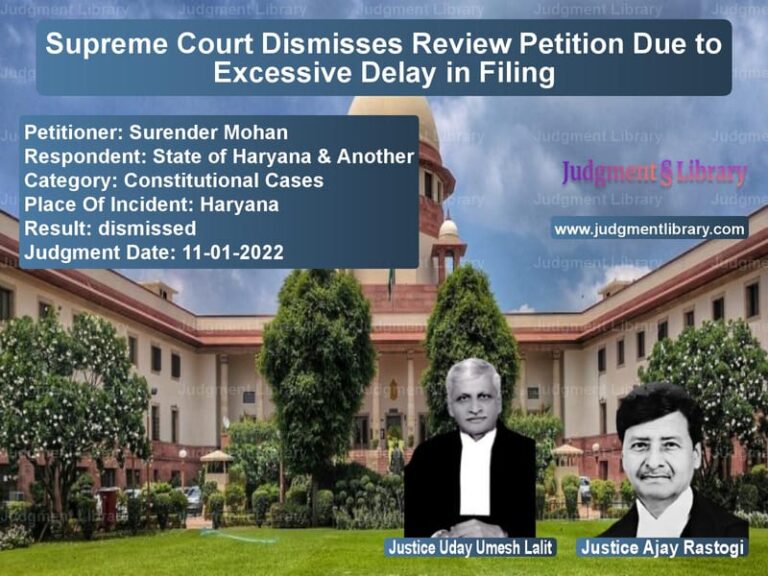Legal Procedure: Supreme Court Clarifies Lawyer’s Duty in Death of Litigant Cases
In a landmark judgment that clarifies the responsibilities of lawyers when their clients pass away during legal proceedings, the Supreme Court has delivered an important ruling that emphasizes the duty of legal practitioners to inform courts about the death of their clients. The case involved a property dispute dating back to 1984 that had taken numerous twists and turns through various courts over nearly four decades.
The legal battle began when Binod Pathak and others filed a title suit in 1984 seeking declaration of title and recovery of possession of land in Village Harkhauli, District Gopalganj, Bihar. After the trial court dismissed their suit in 1989, the plaintiffs appealed to the First Appellate Court, which reversed the trial court’s decision and decreed the suit in favor of the plaintiffs in 2009. However, the defendants then approached the High Court in second appeal, where a crucial procedural issue came to light – several defendants had died during the pendency of the first appeal, and their legal heirs had not been substituted on record.
The High Court took the view that the first appeal had abated due to non-substitution of legal representatives and set aside the first appellate court’s judgment. This led the plaintiffs to approach the Supreme Court, challenging the High Court’s decision.
Arguments of the Parties
The appellants, represented by Mr. Gagan Gupta, vehemently submitted that the High Court committed a serious error in passing the impugned judgment and order. He would submit that the impugned judgment and order passed by the High Court is in gross violation of the provisions of Order XXII Rule 10A of the CPC. He would submit that respondents / defendants in the First Appeal deliberately omitted to bring it to the notice of the plaintiffs that some of the defendants had passed away. According to the learned counsel, the respondents in the First Appeal not only failed to bring it to the notice of the First Appellate Court about the passing away of some of the defendants but allowed the First Appeal to be heard on merits. The failure on the part of the respondents to bring to the notice of the plaintiffs as well as to the Court concerned the factum of death of some of the defendants could be said to be in gross violation of Order XXII Rule 10A of the CPC.
Mr. Gupta submitted that even while conceding to the fact that some of the respondents before the First Appellate Court had passed away and their legal heirs were not brought on record, still the appeal as a whole could not be said to have stood abated.
On the other hand, Mr. Shantanu Sagar, the learned counsel appearing for the defendants submitted that no error not to speak of any error of law could be said to have been committed by the High Court in passing the impugned judgment and order. According to the learned counsel the High Court is right in saying that provisions of Order XXII Rule 4 CPC would override the provisions of Order XXII Rule 10A of the CPC.
Court’s Analysis and Important Arguments
The Supreme Court expressed disappointment with the High Court’s handling of the case, stating: We regret to state that we are thoroughly disappointed with the manner in which the High Court dealt with the Second Appeal and more particularly the understanding of the High Court as regards the position of law on the issues in question. Such procedural errors are not expected at the level of any High Court.
The Court extensively analyzed Order XXII Rule 10A of the Civil Procedure Code, which states: Wherever a pleader appearing for a party to the suit comes to know of the death of that party, he shall inform the Court about it, and the Court shall thereupon give notice of such death to the other party, and, for this purpose, the contract between the pleader and the deceased party shall be deemed to subsist.
The Court explained the rationale behind this provision: Rule 10A is intended to avoid delay in making an application for bringing legal representatives of the deceased party on record. It seeks to mitigate the hardship arising from the fact that a party to a suit may not come to know about the death of the other side during the pendency of the proceedings. In such a situation, it would be appropriate to ask the advocate of the party to give intimation of the death of the party represented by him so as to enable the other side to take appropriate steps.
In a significant elaboration of legal principles, the Court distinguished between two important legal maxims: The genesis of the provision of Rule 10A of the Order XXII lies in the doctrine of ‘clean hands’. The doctrine of ‘clean hands’ originates from the Roman Law, and finds expression in two latin maxims being (i) ex injuria ius non oritur and (ii) nullus commodum capere potest de injuria sua propia, which mean “from wrong, no right arises” and “no one can take advantage of their own wrong”, respectively.
The Court explained the crucial difference between these maxims: A perusal of the aforesaid makes it abundantly clear, that while the maxim ‘ex injuria ius non oritur’ is a principle governing the general spirit of the jurisprudence of “rights”, that a right cannot emanate or emerge from a wrongful act, the maxim ‘nullus commodum capere potest de injuria sua propia’, on the other hand, confirms the general rule of equity and prudence that no one can benefit from their own wrongdoing. The scope of the latter is wider than the former.
The Court firmly applied the principle that no one should benefit from their own wrong: Thus, the principle that no party can take advantage of his/her own wrong i.e. ‘nullus commodum capere potest de injuria sua propria’ is squarely attracted in the event of a failure in complying with the provision of Rule 10A of Order XXII of the CPC, and any abatement as a result of such wrongdoing or failure ought not to be validated by the courts.
In strong language, the Court reminded the legal community of its responsibilities: We would like to remind the High Court of this very important legal maxim of ‘nullus commodum capere potest de inuria sua propria’. It is the duty of the court to ensure that dishonesty or any attempt to abuse the legal process must be effectively curbed and the court must ensure that there is no wrongful, unauthorised or unjust gain for anyone by abusing of the process of the court. No one should be permitted to use the judicial process for earning undeserved gains for unjust profits. The courts’ constant endeavour should be to ensure that everyone gets just and fair treatment.
The Court emphasized the importance of the lawyer’s duty under Rule 10A: The legislative intention of casting a burden on the advocate of a party to give intimation of the death of the party represented by him and for this limited purpose to introduce a deeming fiction of the contract being kept subsisting between the advocate and the deceased party was that the other party may not be taken unaware at the time of hearing of the appeal by springing surprise on it that the respondent is dead and appeal has abated. In order to avoid procedural justice scoring a march over substantial justice the Rule 10A was introduced by the Code of Civil Procedure (Amendment) Act of 1976 which came into force on February 1st, 1977.
The Court specifically addressed the conduct of the defendants’ lawyers in this case: In the present appeal the plaintiffs as well as the defendants have filed their written submissions. The defendants in their written submissions have talked about the merits of the case but very conveniently have not said a word as to why it was not brought to the notice of First Appellate court when the First Appeal was taken up for hearing that the first appeal had in fact stood abated with the death of some of the defendants. Why the lawyer appearing for the defendants also kept quiet and proceeded to argue the matter on merits? This smacks of lack of good faith.
Court’s Final Ruling
The Supreme Court partly allowed the appeal and set aside the High Court’s judgment. The matter was remanded to the High Court for fresh hearing of the second appeal, with specific directions: We are inclined to remand the matter to the High Court for fresh hearing of the second appeal keeping in mind the principles of law as discussed in this judgment.
The Court gave clear instructions about how the High Court should proceed: We clarify that so far as the question whether the decree can be said to be joint and indivisible or otherwise shall be looked into by the High Court while hearing the Second Appeal afresh. If the High Court reaches the conclusion that the decree is joint and indivisible and with the death of some of the defendants, the entire First Appeal could be said to have abated then it shall remand the matter to the First Appellate Court so as to give an opportunity to the plaintiffs to prefer an appropriate application for setting aside of the abatement and bring the legal heirs on record and thereafter hear the first appeal once again on its own merits.
Given that the litigation had been pending since 1984, the Supreme Court directed expedition: Since this litigation is of 1984, we direct the High Court to take up the Second Appeal No. 190 of 2008 for fresh hearing and decide the same within a period of three months from the date of receipt of the writ of this order.
This judgment serves as an important reminder to the legal profession about the ethical obligations of lawyers and the duty of courts to ensure that procedural technicalities do not override substantial justice. The Supreme Court’s strong stance against parties attempting to take advantage of their own wrongs reinforces the fundamental principles of equity and fair play in the administration of justice.
Petitioner Name: Binod Pathak & Ors..Respondent Name: Shankar Choudhary & Ors..Judgment By: Justice J.B. Pardiwala, Justice R. Mahadevan.Place Of Incident: Village Harkhauli, District Gopalganj, Bihar.Judgment Date: 14-07-2025.Result: partially allowed.
Don’t miss out on the full details! Download the complete judgment in PDF format below and gain valuable insights instantly!
Download Judgment: binod-pathak-&-ors.-vs-shankar-choudhary-&-supreme-court-of-india-judgment-dated-14-07-2025.pdf
Directly Download Judgment: Directly download this Judgment
See all petitions in Property Disputes
See all petitions in Judgment by J.B. Pardiwala
See all petitions in Judgment by R. Mahadevan
See all petitions in partially allowed
See all petitions in Remanded
See all petitions in supreme court of India judgments July 2025
See all petitions in 2025 judgments
See all posts in Civil Cases Category
See all allowed petitions in Civil Cases Category
See all Dismissed petitions in Civil Cases Category
See all partially allowed petitions in Civil Cases Category

